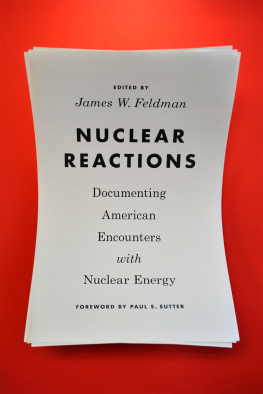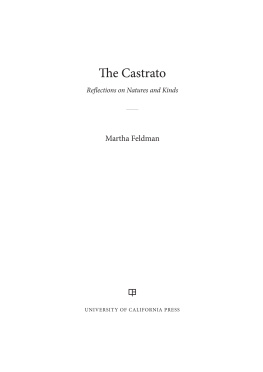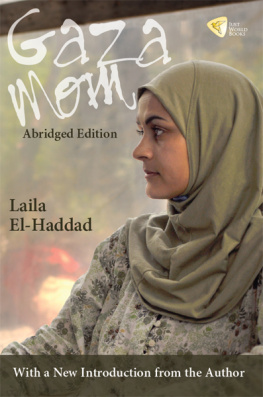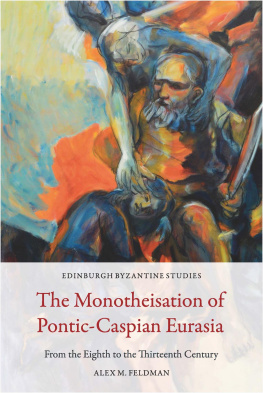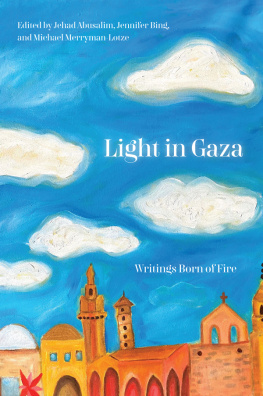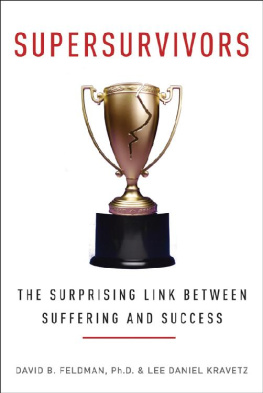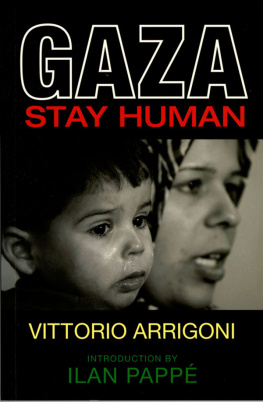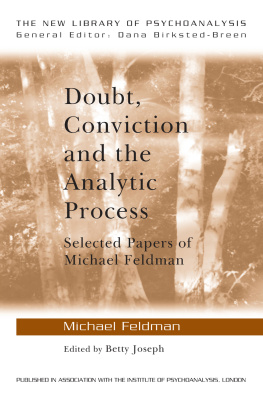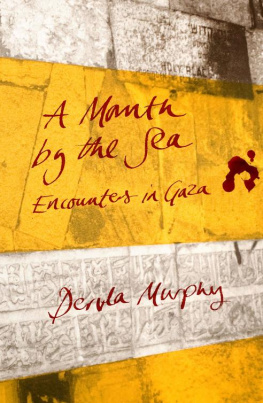Feldman - Governing Gaza
Here you can read online Feldman - Governing Gaza full text of the book (entire story) in english for free. Download pdf and epub, get meaning, cover and reviews about this ebook. year: 2008, publisher: Duke University Press, genre: Politics. Description of the work, (preface) as well as reviews are available. Best literature library LitArk.com created for fans of good reading and offers a wide selection of genres:
Romance novel
Science fiction
Adventure
Detective
Science
History
Home and family
Prose
Art
Politics
Computer
Non-fiction
Religion
Business
Children
Humor
Choose a favorite category and find really read worthwhile books. Enjoy immersion in the world of imagination, feel the emotions of the characters or learn something new for yourself, make an fascinating discovery.

Governing Gaza: summary, description and annotation
We offer to read an annotation, description, summary or preface (depends on what the author of the book "Governing Gaza" wrote himself). If you haven't found the necessary information about the book — write in the comments, we will try to find it.
Feldman: author's other books
Who wrote Governing Gaza? Find out the surname, the name of the author of the book and a list of all author's works by series.
Governing Gaza — read online for free the complete book (whole text) full work
Below is the text of the book, divided by pages. System saving the place of the last page read, allows you to conveniently read the book "Governing Gaza" online for free, without having to search again every time where you left off. Put a bookmark, and you can go to the page where you finished reading at any time.
Font size:
Interval:
Bookmark:
DUKE UNIVERSITY PRESSDURHAM AND LONDON2008
2008 Duke University Press
All rights reserved
Printed in the United States of America on acid-free paper
Designed by Heather Hensley
Typeset in Adobe Jenson Pro by Keystone Typesetting, Inc.
Library of Congress Cataloging-in-Publication Data appear on the last printed page of this book.
IN MEMORY of my mother, Marcia Feldman, and my grandmother, Sylvia Smith
My thanks go first to the people I knew in Gaza. This book could not have been written without the many retired civil servants and other Gazans who welcomed me into their offices, homes, and liveswho let me tape record our conversations and shared their memories and insights with me. Though my commitment to honor their privacy means I cannot name them here, I am forever grateful to them. Of those people I knew in Gaza whom I can name, special thanks must go to my research assistants, Emad Karam and Mushir Amer, who with amazing dedication and resourcefulness helped me transcribe the tapes of my interviews and work through some of my documentary materials. I am also grateful for their good humor and the pleasure of their company. Others in Gaza who helped me with my research include Dr. Assam Sesalem, Wedad Sourani, Majda Taleb, Ahmed Saleem, Wedad Nasser, Yusuf El-Hindi, Abdul Latif Abu Hashim, and Rajab Sarraj. I thank them all for their efforts, and also thank Wedad for the many excellent meals. I wish them and everyone in Gaza and in Palestine more generally better days ahead.
I conducted archival research for this project in a number of places. I am grateful to the archivists and librarians at Dar al-Wathaiq and Dar al-Kutub in Cairo; the Israel State Archives and the Jewish National Library in Jerusalem; the Library of Congress; the New York Public Library (particularly the Middle East and Jewish Divisions); the National Archives/PRO in London; the American Friends Service Committee Archives in Philadelphia; and the United Nations Archives in New York. Staff in the Gaza City offices of the Palestinian Housing Ministry, Awqaf Ministry, Comptroller Generals Office, Pensions and Social Security Administration, Omari Mosque library, as well as the Gaza City Municipality, aided my research into Gazas local documentary history immensely. The New York Public Library deserves an additional word of thanks for providing not only resources for my research, but wonderful spaces in which to write. I wrote the dissertation that was the first incarnation of this project in the Wertheim Study and wrote much of this book in the Allen Room. I cannot imagine better conditions in which to work. Some of the ideas explored in this book were first published in my Everyday Government in Extraordinary Times: Persistence and Authority in Gazas Civil Service (19171967), Comparative Studies in Society and History 47, 4 (2005): 86391.
I was extremely fortunate to receive generous financial support at all stages of this process, support that gave me the opportunity to dedicate myself not only to research but to writing. Dissertation research was funded by the Near and Middle East Program of the Social Science Research Council (through two grants), the Council of American Overseas Research Centers, and the Wenner-Gren Foundation. The writing of the dissertation was made possible by support from the Horace Rackham Graduate School at the University of Michigan and the Charlotte W. Newcombe Foundation. I conducted follow-up research in Palestine with a grant from the Palestinian American Research Center. The writing of this book was supported by a Richard Carley Hunt Fellowship from the Wenner-Gren Foundation. I thank all these institutions for their support.
My research experience was made eminently more pleasurable by the many wonderful people I knew in Gaza and Ramallah. I treasure my friendships with Khalil and Ana Ansara, Christo Bursheh, Marwan Hamad, Lubna Ghaneim, Amelia Peltz, and Nisreen Shyoukhi. Abu Ali Harara and Jamal Harazin helped me in my everyday life in Gaza in innumerable ways, keeping a careful, but never oppressive, eye on my well-being. Bassam Nasser helped me get settled when I first arrived. A special word of thanks goes to Samah Zaroub and her family. I cant imagine a warmer welcome than I received from this large, wonderful family. I was delighted to share the joys of their life and honored to be included also in their sorrows.
My intellectual interest in the Middle East, and my first inkling that I wanted to be an academic, began when I was an undergraduate at Wesleyan University. I especially thank Hope Weissman, my senior thesis advisor, for reading everything and always challenging me to do more. It is certain friends from collegemost especially Jen Douglas, Erin Kelly, and Elizabeth Meisterwhom I most count on to keep me true to myself. I began my graduate work in the Near Eastern Studies program at New York University. Courses I took there with Lila Abu-Lughod, Samira Haj, and Timothy Mitchell influenced my thinking in important ways. While at NYU, I also began my study of Arabic with Ahmed Ferhadi, who provided an excellent foundation. Anyone who works on the Middle East will find the rest of my path of Arabic language learning (Middlebury, CASA) familiar. I am grateful to my teachers in these institutions and also for the many friendships forged in the struggle of learning Arabic. My CASA cohort was especially close, and I appreciate the continued friendships of Christina Civantos, Ken Garden, Parastou Hassouri, Kate Kolstad, Nancy Reynolds, Karen Rignall, Jessica Winegar, and the other shilla members Lee Keath and Karim Mostafa.
I cannot think of a better intellectual training ground than the University of Michigans doctoral program in anthropology and history. Certainly it provided me with exactly what I needed to be able to imagine and embark on this project. I especially thank the members of my doctoral committeeBrinkley Messick, Ann Stoler, Juan Cole, and Val Danielboth for their intellectual examples and for their encouragement throughout. The influence of what they taught me is evident throughout these pages. Fellow students at Michiganincluding Lee Belhman, Carla Daughtry, Karen Rignaill, and Laura Stevensenriched all aspects of my life. I was especially fortunate that an extraordinary group of colleagues and friends also came to New York for dissertation writing. I cannot imagine a better writing group than we hadits strength perhaps evident in that it has continued in various forms even beyond the dissertation. For their insightful comments, helpful nudges, careful readings, and the pleasure of their company, I thank Pamila Gupta, Rachel Heiman, Mani Limbert, Brian Mooney, and Karen Strassler.
I began the process of reimagining my dissertation while a fellow at the Society of Fellows in the Humanities at Columbia University. While teaching contemporary civilization occupied a great deal of my time, what I learned from the experience has influenced this text in unanticipated ways.
I am glad for the presence around the Heyman Center of Bashir Abu-Manneh, Sandrine Berteaux, Rashmi Sadana, Mark Swislocki, and Miriam Ticktin, all of whom stimulated my thinking enormously. I consider it especially fortuitous that Miriam and I landed at Columbia at the same time. Our conversations and ongoing collaborations have been important to so many aspects of my work. I am thankful to my colleagues at the Kevorkian Center at New York University for providing a congenial place to work and to write. I am most especially grateful to Zachary Lockman for making it possible for me to have the time to do so. My gratitude to the people who took the time (out of always busy schedules) to read parts or all of the manuscript is enormous. I thank Robert Blecher, Elliott Colla, Rachel Heiman, Mandana Limbert, Zachary Lockman, Shira Robinson, and Rashmi Sadana. The book is immeasurably improved by their thoughtful suggestions. I am grateful to Hamdi Attia for his work on the maps and to Tracy Maher for her help with transliterations. I also thank two anonymous readers for Duke University Press for their comments and Ken Wissoker, Courtney Berger, and Mark Mastromarino for their enthusiasm for the project and their expert guidance in bringing it to completion.
Font size:
Interval:
Bookmark:
Similar books «Governing Gaza»
Look at similar books to Governing Gaza. We have selected literature similar in name and meaning in the hope of providing readers with more options to find new, interesting, not yet read works.
Discussion, reviews of the book Governing Gaza and just readers' own opinions. Leave your comments, write what you think about the work, its meaning or the main characters. Specify what exactly you liked and what you didn't like, and why you think so.


